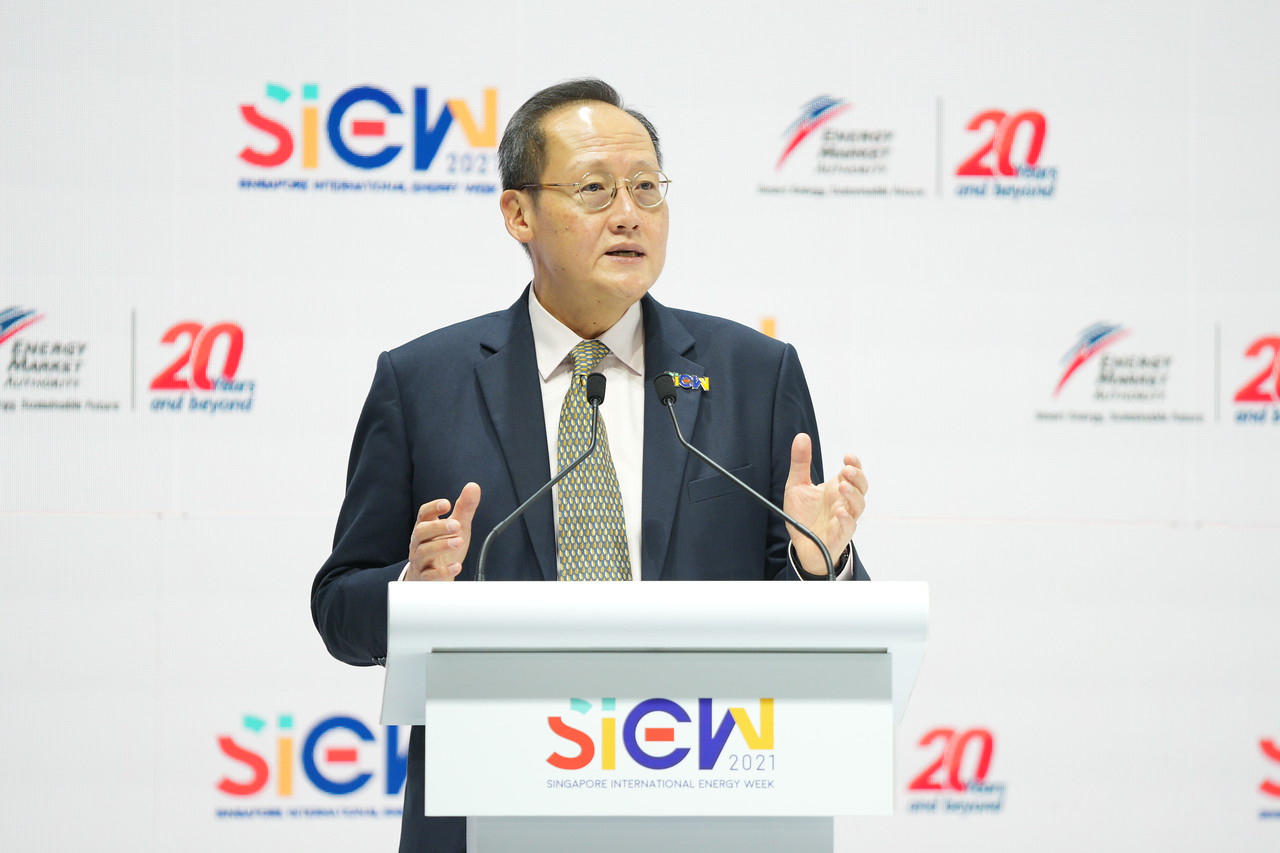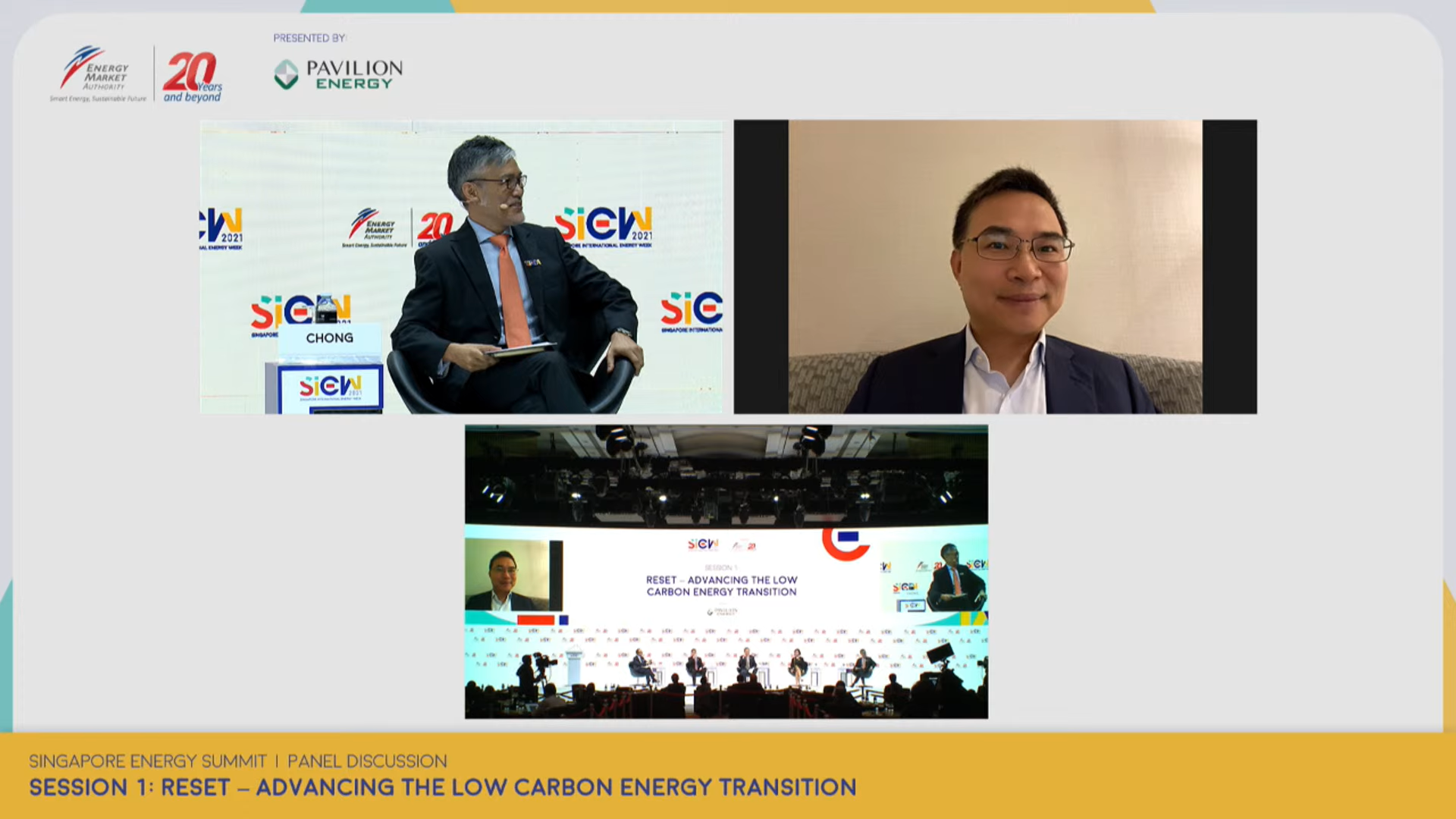What is Asia's role in advancing the energy transition? The opening session of Singapore Energy Summit explored how global economies can work together to facilitate decarbonisation efforts towards a sustainable energy future. By Ryan Yap.

The world's transition to a low carbon future brings with it a unique set of challenges and opportunities. This was at the heart of the Singapore Energy Summit discussions on 25 October, as energy thought leaders discussed the critical success factors in advancing the energy transition.
In his Keynote Address, Dr Tan See Leng, Minister for Manpower and Second Minister for Trade and Industry, Singapore, opened the Summit by acknowledging that the energy transition will not be easy to navigate. He added that it would require full and participatory efforts by all stakeholders to accelerate low carbon energy developments both in the region and globally.
Dr Tan said that Asia is already responding to the demands of an increasingly carbon-constrained world. Countries like China have already pledged to achieve carbon neutrality by 2060, while other regional economies have set emissions reduction targets and renewable energy goals.
Singapore's climate efforts
Singapore remains committed to playing its part in meeting collective climate goals, said Dr Tan. He shared that the key strategies include decarbonising the country's electricity generation and addressing climate change through investments in technology and innovation. Singapore can contribute to the clean energy journey by serving as a base from which clean energy companies can deploy their solutions in the region.
Dr Tan also said that a key focus of Singapore’s international engagement strategy is to learn from and contribute to the international discourse on best practices and capacity building. Within ASEAN, the focus for regional energy cooperation is to enhance connectivity and market integration.

Speaking at the Summit, Alan Heng, Interim Group Chief Executive Officer, Pavilion Energy, said he expects increased variability and volatility as energy systems become more interconnected—both physically and through markets. This was evident in the recent surge in natural gas prices, with far-reaching implications for the energy transition.
Offering a positive spin, Lei Zhang, Chief Executive Officer, Envision Group, said that he sees opportunities and first-mover advantage in building the renewable energy ecosystem and developing best practices. He noted that the energy transition to renewables will create a totally different industrial system, citing notable examples such as hydrogen refineries, electric vehicles and green ammonia.
Key levers to driving the decarbonisation of the energy sector

In a wide-ranging panel discussion, expert speakers debated the role of new technologies and innovative policy frameworks in driving the decarbonisation of global energy systems.
Natural gas as a transition fuel
Dr Tan See Leng, Minister for Manpower and Second Minister for Trade and Industry, Singapore, noted that natural gas will continue to play an important role in the energy transition as Singapore scales up renewable alternatives and carbon capture technologies, which are still nascent.
Martin Houston, Vice Chairman, Tellurian Inc, shared his view that natural gas will still be part of the energy mix by 2050, as it is a sustainable means of advancing the energy transition. He added that countries cannot continue to develop natural gas facilities without policy support, and that the world will remain affected by the current energy crisis without new investments.
Green hydrogen and new technology developments
Wong Kim Yin, Group President and Chief Executive Officer, Sembcorp Industries, projected that the cost of green hydrogen in 10 years’ time will be 50-60% lower. He remarked that hydrogen can already be considered an economically feasible fuel option today.
Mr Zhang of the Envision Group said that the transition to renewables and clean energy sources is tied to the advent of digital technology. This is rapidly changing and follows Moore’s law—where growth is exponential—and will eventually reduce the cost of power generation.
Other burgeoning opportunities
Aw Kah Peng, Chairman, Shell Companies in Singapore, sees opportunities in building new energy ecosystems, particularly in relation to the circular economy and the rise of sustainable fuels. She cited examples of creating aviation fuel from sustainable feedstock and harvesting hydrocarbons from waste plastic, as a glimpse of things to come in a more sustainable energy future.
Follow us on Twitter (@SIEW_sg) to get the latest #SIEW2021 updates throughout the day!